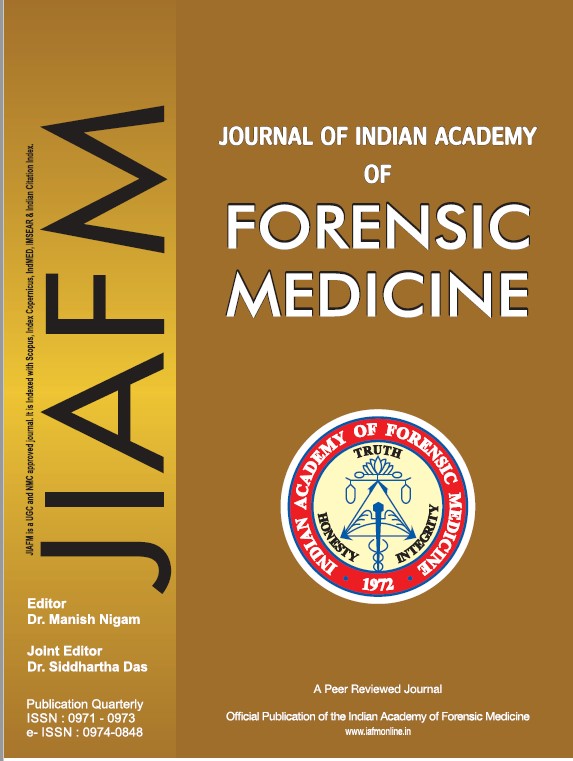Written Informed Consent: Is It Practiced What Is Being Preached?
DOI:
https://doi.org/10.48165/Keywords:
Written Informed Consent, Medical Ethics, Consumer Protection ActAbstract
The principles of informed consent are often neglected during clinical practice in developing countries. We tried to assess the level of knowledge of doctors with regards to informed consent and whether they adhere to the principles of informed consent in actual practice. Questionnaire based cross sectional survey was conducted among 150 randomly selected clinical practitioners of various specialty and super-specialty working at Bhopal City of India. The questionnaire comprised of 30 items of fixed response type (yes/no/can‘t say) testing mainly three attributes – knowledge, attitude and practice. Out of 150 clinical practitioners selected to participate in the survey, 115 completed the survey (Response rate=76.66%). Majority of respondents answered correctly when asked about the fundamental principles of obtaining a valid consent (correct response rate varying from 97.4% to 83.4%). However there was marked disparity between level of knowledge and actual practice with regards to informed consent. Study provides valuable insight into how doctors approach informed consent during their practice. It seems that doctors meet many, but not all, of the legal requirements for informed consent. We recommend regular workshops for doctors, on this important issue.
Downloads
References
The Consumer Protection Act 1986. Available at: http://chdconsumercourt.gov.in/consumerProtectionAct1986.pdf. Accessed on 15.01.2014.
Doyal L. Good clinical practice and informed consent are inseparable. Heart. 2002; 87: 103–106.
Available at: http://judis.nic.in/supremecourt/imgs1.aspx?filename=30116. Accessed on 15.01.2014.
Faden RR, Beauchamp TL. A History and Theory of Informed Consent. New York: Oxford University Press; 1986.
Humayun A, Fatima N, Naqqash S, Hussain S, Rasheed A, Imtiaz H, Imam SZ. Patients' perception and actual practice of informed consent, privacy and confidentiality in general medical outpatient departments of two tertiary care hospitals of Lahore. BMC Medical Ethics. 2008; 9:14.
Miyashita M, Hashimoto S, Kawa M, Shima Y, Kawagoe H, Hase T, Shinjo Y, Suemasu K. Attitudes toward disease and prognosis disclosure and decision making for terminally ill patients in Japan, based on a nationwide random sampling survey of the general population and medical practitioners. Palliat Support Care. 2006; 4: 389-98.
Chan HM. Informed consent Hong Kong style: an instance of moderate familism. J Med Philos. 2004; 29: 195-206.
Kaufert JM, Q'Neil JD. Biomedical rituals and informed consent: Native Canadians and the negotiation of clinical trust. Social Science Perspectives on Medical Ethics. Netherlands: Kluwer Academic Publishers; 1990: 41-63.
A practical guide to informed consent. Available at: http://www.templehealth.org/ICTOOLKIT/html/ictoolkitpage23.html. Accessed on 15.01.2014.
Henley L, Benatar SR, Robertson BA, Ensink K. Informed consent – a survey of doctors' practices in South Africa. S Afr Med J. 1995; 85: 1273-1278.
Yousaf RM, Fauzi ARM, How SH, Rasool AG, Rohana K. Awareness, knowledge and attitude towards informed consent among doctors in two different cultures in Asia: a cross sectional comparative study in Malaysia and Kashmir, India. Singapore Med J. 2007; 48: 559-65.


